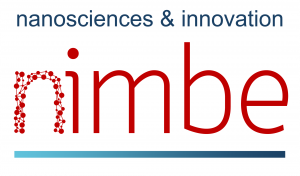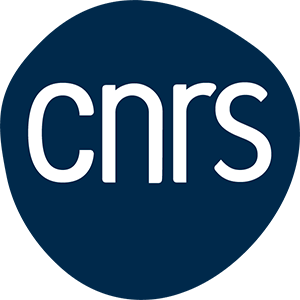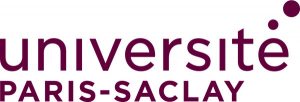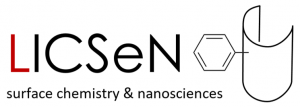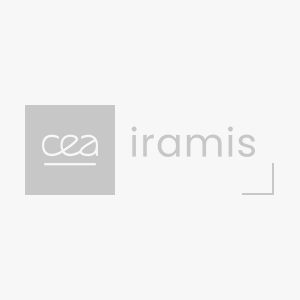Description de l’offre / Research Topic
Fichier d’annonce / Announcement file
It is important to develop the scientific knowledge and stimulate innovations to recycling Plastics. The extremely large variety of plastic based objects that we use in our daily life are made of a wide range of plastic materials covering many different polymers, many different formulations. Plastics objects are also used for many purposes and there is therefore the need of various ways to collect, sort and treat them.
Contexte et collaboration – Context and collaboration:
The management and recovery of plastic waste appears as a major issue of the current environmental and ecological transitions. Indeed, the consumption of plastics (reaching 64.4 Mt in 2017 in Europe) and the amount of waste produced (reaching 27.1 Million tons in Europe in 2017) are still increasing. The plastic recycling rate however remains low (around 31.1wt.-%, against 41.6wt.-% for energy recovery and 27.3wt.-% going to landfill1). Among European countries, France has one of the lowest plastic recycling rate (21.3% compare to 30% average in Europe). It therefore appears necessary to develop new processes for the recovery and recycling of plastics in order to achieve the ambitious objectives described in the French roadmap for circular economy and in the recent Anti-Gaspillage Economie Circulaire regulation (https://www.legifrance.gouv.fr/ jorf/id/JORFTEXT000043231546 ) targeting 100% recycled plastics by 2025 and a reduce of the consumption of resources by 30% compared to the gross domestic product (GDP) by 2030 compared to 2010. To attain those objectives, Plastics industry companies have announced voluntary commitments in particular to incorporate more recycled plastics (RPM) into products. Indeed, the “Fédération de la Plasturgie et des Composites” (Polyvia since 2021) indicates that 590,000t of recycled plastics were integrated in 2019 in new products with the objective of increasing this quantity by 50% in 2020-2021, over a total of 900,000t. The objective of tripling the quantities of recycled materials incorporated by 2025 is consistent with the objective of moving towards 100% recycled plastics. This observation is not only French but rather a European trend. Indeed, the potential for recycling plastic waste in the Union is still largely untapped, in particular compared to other materials such as paper, glass, or metals. Of the more than twenty-seven million tons of plastic waste collected each year in Europe, less than a third is sent to recycling plants. The margin of progress is thus huge.
Methods of recycling of plastics are generally divided into four categories: primary, secondary, tertiary, and qua-ternary (see Figure 9). Primary recycling or closed loop recycling method is considered when the materials after recycling present equal or improved properties compared to the initial or virgin materials. When the recyclates present a decrease in the properties level, one may spook about secondary or down-cycling method. In tertiary (also known as chemical or feedstock) recycling method, the waste stream is converted into monomers or chemicals that could be advantageously used in the chemical industries. Finally, quaternary (also known as thermal recycling, energy recovery, and energy from waste) recycling method corresponds to the recovery of plastics as energy and is not considered as recycling for Circular Economy.
Various processes can be considered for chemical recycling which present different level of maturity. Hence this project that will study the decontamination of various PVC formulations using green solvents, and more particularly supercritical CO2.
This work located in Saclay, France, in the heart of the University Paris-Saclay and will benefit from a very multidisciplinary and international environment.
This work will benefit from the prestigious framework of the France 2030 funding, and more precisely the PEPR Recycling (https://www.cnrs.fr/fr/pepr/pepr-recyclabilite-recyclage-et- reincorporation-des-materiaux-recycles ). It will be supervised by Dr. Jean-Christophe P. Gabriel: linkedin.com/in/jcpgabriel).
The successful candidate will have access to many different pieces of knowledge, technologies, experiments as well as characterization tools. This position is therefore a great opportunity to enhance your knowledge base, your skills as well as your value on the job market.
Qualifications – Key Qualifications
Successful candidates should have a doctorate degree in a relevant field (polymer, process, chemistry, etc) and a publication track record. Engineering training is a plus. Past experience with supercritical is a plus but is not required.
- Candidate should have an interest and/or experience in solid-liquid extraction, process development, as well as complementary simulation and design. Valuable. Hands-on experience with supercritical methods is a plus.
- Demonstrated ability to work on interdisciplinary projects and to quickly and efficiently acquire new technical skills outside the sphere of primary training.
- A target-oriented, structured attitude and team spirit are absolutely necessary. Excellent communication skills and fluency in English are required (working language will be either French or English). We further expect creativity in problem solving and integrative skills.
- Energetic, proactive, results-oriented, and self-motivated team player with strong organizational skills.
- Ideal candidate will be adept at planning, prioritizing, multi-tasking, organizing, following through, and thinking on his/her feet.
We offer:
This position comes with a very attractive benefit package, typical of French working environment. It will provide excellent working conditions in a highly interdisciplinary environment.
Localisation du poste
Site
CEA -Saclay
Critères candidat
CV
Candidate should send as soon as possible CV, Cover Letter and References to: jean-
